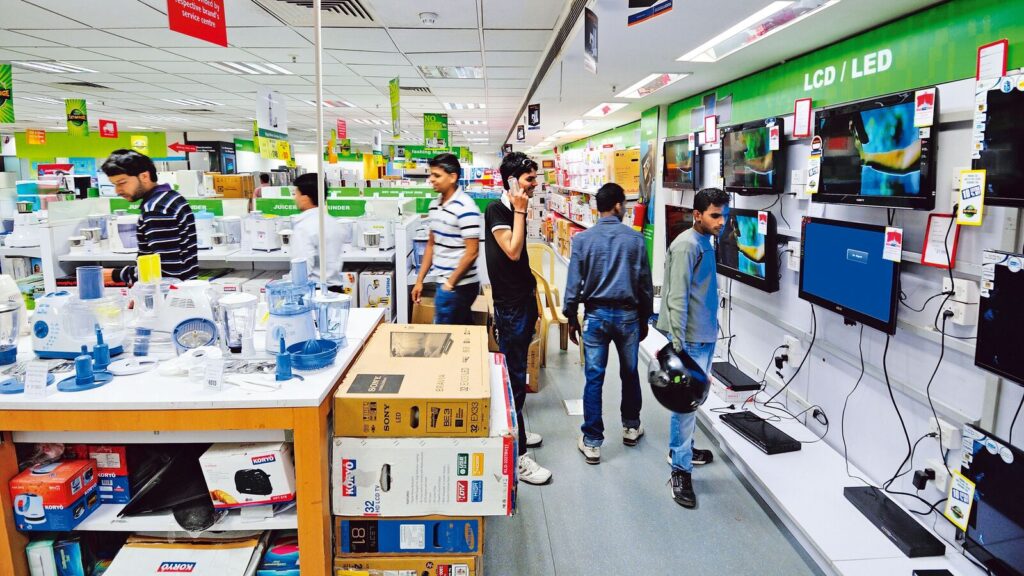More than 1,500 products will be brought under stringent quality standards by the end of the current financial year under the watchful eye of the Bureau of Indian Standards (BIS), the people cited above said on condition of anonymity. Currently, 761 products are regulated by so-called quality control orders (QCOs), a form of non-tariff barrier that mandates tough parameters for domestic and imported goods.
Some of the items already included under QCOs in India are household and industrial appliances such as coffee makers, shavers, electrical appliances, vacuum cleaners, stainless steel utensils, toys, hot-rolled and cold-rolled steel strips and medical devices. The expansion of the QCO regime could bring items such as wheelchairs, full-body harness, self-locking gates, artificial limbs, sanitaryware and ceramic tiles under these standards.
The plan aims to limit dumping of cheap and sub-standard products from China, and help India fare better in the global manufacturing and supply chain by focusing on quality control, the officials said. India has been steadily trying to boost domestic manufacturing to reduce reliance on goods from China; still, its trade deficit with China rose to $57.83 billion in the April-October period of 2024, up from $51.12 billion in the same period the previous year.
Also read | Donald Trump’s new trade war on China is also an opioid war
Jumbo meeting
“The first round of a jumbo meeting with officials from all 37 ministries was held last week, and another round of meetings is proposed,” one of the three officials said, adding the final list of products under quality orders will be finalized after a minister-level meeting.
The second official said that the products expected to be included in the new QCO list would come from various ministries including commerce, steel, textiles, chemical and fertilizers, education, women and child development, labour and employment, health, mines, social justice, and agriculture.
Queries emailed to all the ministries mentioned above remained unanswered till press time.
The push for QCOs comes at a time when US president Donald Trump has threatened to unleash fresh tariffs across both allies and rivals. While India could be a beneficiary of tariffs on China, it may also suffer if surplus Chinese goods find their way into Indian markets. Back-channel discussions have reportedly kept India out of the first list of targeted countries, which includes Mexico, Canada, and China. It also coincides with India’s focus on becoming a global manufacturing hub. By enforcing stricter quality norms, the government aims not only to protect consumers from inferior products but also boost domestic industry by setting internationally recognized standards.
QCOs are enforced by the BIS, an arm of the consumer affairs ministry. After a QCO is notified; no firm can manufacture, import, distribute, sell, hire, lease, store or exhibit any product covered under the QCO without an ISI (Indian Standards Institute) mark. Violations can attract jail terms and fines.
Also read | CCPA plans class action against firms selling substandard products
‘May raise costs’
Industry experts welcomed the government’s initiative but cautioned against excessive restrictions that could drive up costs.
“The expansion of QCOs is a step in the right direction as it ensures consumers get access to quality products and helps eliminate substandard imports,” said Vinod Kumar, president of India SME Forum. “However, the government must strike a balance to ensure that compliance costs do not disproportionately affect small businesses and domestic manufacturers.”
In December, Mint reported that the Centre may provide more time for local manufacturers to level up and exempt small, medium, and micro enterprises (SMEs) with annual sales below ₹2 crore from the ambit of QCOs. This may be done by introducing an enabling provision, the report said.
More products
Of the 761 products currently under the QCO regime, 353 are from DPIIT (Department for Promotion of Industry and Internal Trade), which is under the ministry of commerce; 151 from steel ministry; 77 from department of petrochemicals; 76 from textiles ministry; 64 from the ministry of electronics and IT; and 14 from the ministry of heavy industries, the government data showed.
Another more than 700 additional products are expected to be brought under QCOs this year, including electronics, steel, textiles, chemicals, and industrial goods, among others. The initiative began with just 121 products in 2014 when the National Democratic Alliance first came to power at the Centre.
Also read | Govt drawing up parameters to gauge states for drug enforcement, improve quality of products
“Bringing new products under QCOs is part of our broader policy framework to ensure product quality and should not be seen from any other perspective,” a third official said when asked about QCOs’ relation to non-tariff barriers. “It is a continuous process to strengthen our domestic industry and make our products globally competitive.”
Source:https://www.livemint.com/politics/policy/indias-quality-crusade-stricter-standards-aim-to-boost-manufacturing-curb-substandard-imports-11739008104832.html

